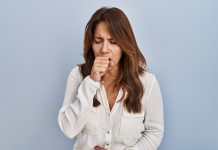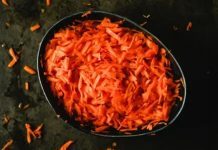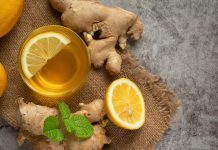Home Remedies for Concussion
A concussion is a type of traumatic brain injury that can occur due to a blow to the head or sudden jolting of the head and body. While it’s crucial to seek medical attention for a proper diagnosis and evaluation of the severity of a concussion, there are some home remedies and self-care techniques that can complement medical treatment and promote recovery.
Prioritizing Safety Measures and Prevention in Home
To create a safe environment for concussion recovery, consider these measures:
- Remove tripping hazards.
- Install handrails and non-slip mats.
- Properly store household items.
- Limit activities that could lead to falls.
- Install smoke and carbon monoxide detectors.
- Keep emergency contacts readily accessible.
- Follow the healthcare provider’s recommendations. By ensuring a safe home environment, you can significantly contribute to a successful recovery.
Concussion Causes
A concussion is a brain injury that disrupts normal brain function temporarily. It doesn’t always involve a loss of consciousness; in fact, most concussions do not. Concussions can occur from various activities, including sports, falls, or car accidents.
- Sports Injuries: High-impact sports like football, soccer, and hockey pose a risk of head injuries and concussions.
- Accidents: Falls, car accidents, and workplace mishaps can result in concussions.
- Assaults: Physical altercations leading to head trauma can cause concussions.
- Military Service: Blast waves from explosions can induce concussions among service members.
- Recreational Activities: Activities like biking or skateboarding without proper safety precautions may lead to head injuries.
It’s crucial to understand that even seemingly minor head injuries can result in concussions.

Symptoms of Concussion
Identifying the signs and symptoms of concussions is paramount for prompt diagnosis and proper care.
- Headache: One of the most prevalent symptoms is a persistent or severe headache following a head injury.
- Dizziness: Feeling unsteady or lightheaded, akin to vertigo, is common among those with concussions.
- Confusion: Individuals may experience difficulty concentrating, focusing, or remembering recent events.
- Nausea and Vomiting: Nausea and even vomiting can occur, especially in the hours following the injury.
- Sensitivity to Light or Noise: Overstimulation of the senses, resulting in discomfort, is another telltale sign.
- Loss of Consciousness: While not always present, some individuals may briefly lose consciousness.
- Amnesia: Memory loss concerning the events or time surrounding the injury is typical.
- Fatigue: Feeling fatigued, even with minimal physical or mental exertion.
- Mood Changes: Emotional fluctuations, such as irritability, anxiety, or sadness, may occur.
- Sleep Disturbances: Difficulty falling asleep, staying asleep, or experiencing excessive drowsiness during the day.
It’s essential to remember that symptoms may not appear immediately, and they can vary in intensity and duration. If you or someone you know exhibits these signs after a head injury or collision, it’s crucial to seek medical attention promptly. Early diagnosis and proper management are key to ensuring a smooth recovery and preventing potential complications.
Treatment for Concussion
Exploring Natural Treatment for Concussion: From rest and nutrition to cognitive rest and hydration, discover these holistic approaches to aid recovery and support brain health.
- Hydration and proper nutrition
- Herbal remedies like ginger for nausea
- Essential oils for headache relief
- Mindfulness and relaxation techniques
Always consult a healthcare professional for severe cases.
Prioritizing Rest and Recovery Strategies for Concussion
Recovery from a concussion hinges on ample rest and careful management.
- Physical Rest: Allow the brain to heal by avoiding physically demanding activities, sports, and strenuous exercises.
- Cognitive Rest: Limit mentally taxing activities like work, studying, or excessive screen time to prevent symptom exacerbation.
- Adequate Sleep: Ensure sufficient sleep for the body to repair and regenerate brain cells.
- Hydration and Nutrition: Stay well-hydrated and maintain a balanced diet to support the healing process.
- Stress Reduction: Manage stress through relaxation techniques like deep breathing, meditation, or yoga.
- Avoid Alcohol and Drugs: Steer clear of alcohol and recreational drugs, as they can hinder recovery.
- Medication: Consult a healthcare provider before using any over-the-counter pain relievers.
- Symptom Monitoring: Keep track of symptoms and report any changes to a medical professional.
By following these rest and recovery strategies, you can facilitate a smoother and faster concussion recovery process.
Nourishment and Hydration Tips for Concussion Recovery
Proper nourishment and hydration play a pivotal role in the healing process following a concussion.
- Stay Hydrated: Drink ample water throughout the day to prevent dehydration, which can worsen symptoms. Avoid excessive caffeine and alcohol.
- Balanced Diet: Consume a well-rounded diet rich in fruits, vegetables, lean proteins, and whole grains. Nutrient-dense foods provide essential vitamins and minerals for brain healing.
- Omega-3 Fatty Acids: Incorporate foods like fatty fish (salmon, mackerel), flaxseeds, and walnuts, which contain omega-3s that support brain health.
- Anti-Inflammatory Foods: Include foods with anti-inflammatory properties, such as turmeric, ginger, and berries, to help reduce inflammation in the brain.
- Protein for Repair: Protein-rich foods like lean meats, beans, and dairy aid in tissue repair and recovery.
- Fiber for Digestion: High-fiber foods like whole grains, fruits, and vegetables promote healthy digestion and overall well-being.
- Small, Frequent Meals: Eating smaller, more frequent meals can help maintain stable blood sugar levels and reduce the risk of headaches.
- Limit Processed Foods: Minimize processed foods, sugary snacks, and excessive sodium, as they can exacerbate symptoms.
- Hydration Tracker: Keep a hydration tracker to ensure you’re drinking enough water throughout the day.
- Consult a Dietitian: If needed, consult a registered dietitian for a personalized nutrition plan tailored to your recovery needs.
Remember that every individual’s dietary requirements may vary, so it’s essential to listen to your body and consult a healthcare professional or dietitian for personalized guidance.
Alternative Therapies for Concussions
In addition to rest, home remedies for concussion recovery and traditional treatments, alternative therapies like acupuncture, chiropractic care, and mindfulness techniques can complement concussion recovery. These therapies and herbal remedies for concussion relief focus on relieving symptoms, reducing stress, and promoting overall well-being. Always consult a healthcare professional before starting any alternative treatment to ensure it’s safe and appropriate for your specific condition.
Venturing into Alternative Approaches
Exploring alternative therapies can offer additional options for concussion recovery. Acupuncture, chiropractic care, and mindfulness techniques aim to alleviate symptoms and promote healing. It’s essential to consult with a healthcare professional before pursuing any alternative treatment to ensure its safety and effectiveness for your specific situation.
Nutrition and Diet for Concussion Recovery
Recovering from a concussion is a process that requires a holistic approach, including proper nutrition and diet. A well-balanced diet can significantly contribute to your healing and overall brain health during this critical period.
- Hydration: Stay well-hydrated to support brain function.
- Balanced Diet: Consume a variety of fruits, vegetables, lean proteins, and whole grains for essential nutrients.
- Omega-3 Fatty Acids: Include fatty fish, flaxseeds, and walnuts for brain health.
- Anti-Inflammatory Foods: Turmeric, ginger, and berries help reduce brain inflammation.
- Protein: Lean meats, beans, and dairy aid in tissue repair.
- Fiber: Whole grains, fruits, and vegetables promote digestion.
- Small, Frequent Meals: Avoid blood sugar spikes and headaches by eating smaller, more frequent meals.
- Limit Processed Foods: Minimize sugary snacks and sodium, as they can worsen symptoms.
Consult a healthcare provider or dietitian for a personalized nutrition plan tailored to your recovery needs. Proper nutrition can significantly contribute to a smoother concussion recovery process.


















